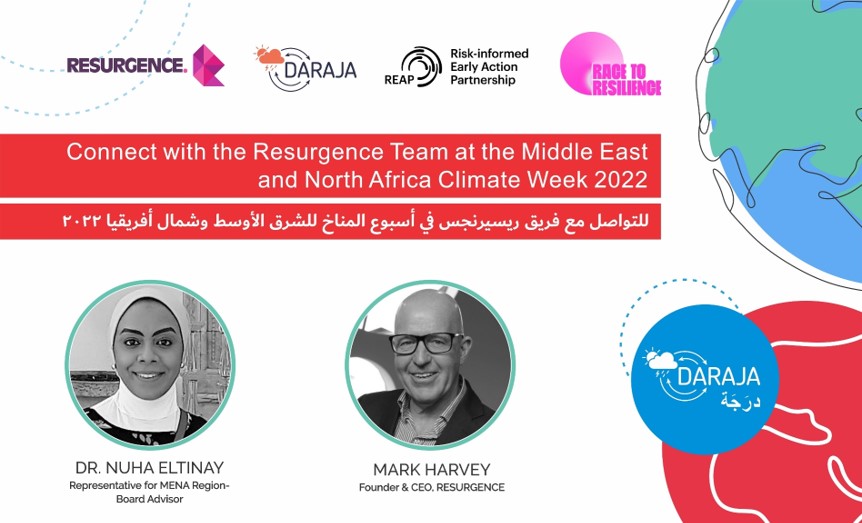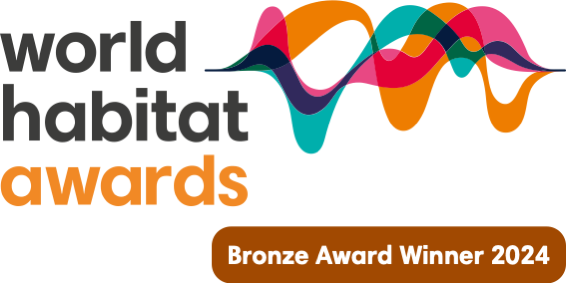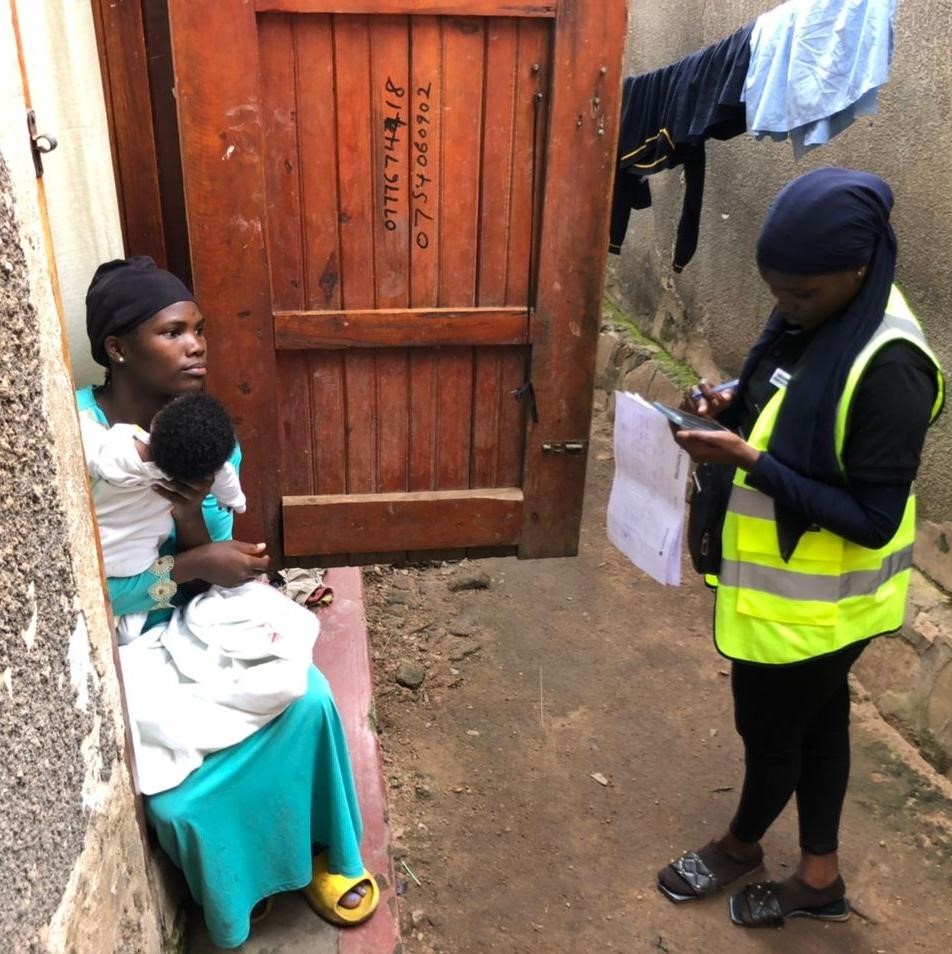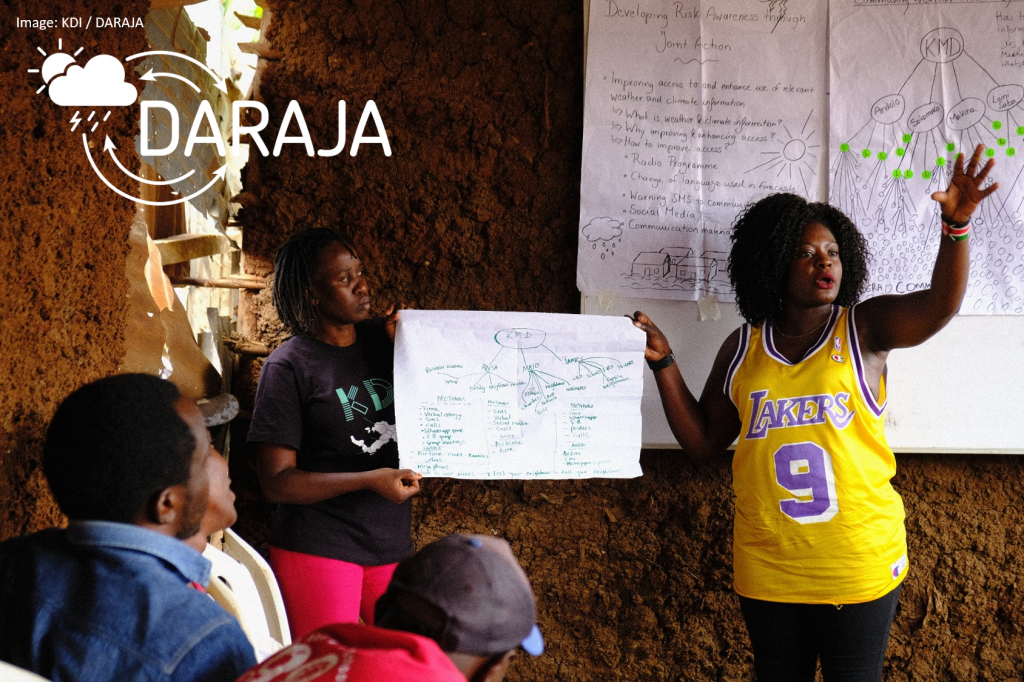Resurgence Team recap of events from MENACW 2022
Unpacking the 5 MENA Regional Climate Week events from the Resurgence Team in Dubai.
Track the highlights of our four day programme delivered from the dynamic heart of MENA (Middle East and North Africa) Regional Climate Week in Dubai – and powered by the Race to Resilience Campaign.
Under our DARAJA Service and Partnership, our team worked with negotiators, meteorologists, risk experts and community leaders to discuss issues central to the Dubai agenda. They covered key aspects of Locally Led Adaptation, inclusive early warning systems design and the guiding principles behind scaling climate information services such as DARAJA.
Find out more from the text, image and video links below.
Monday 28 March 2022
Launch of the REAP “Early Action: State of Play” 2021 Report Risk-informed Early Action Partnership
Host: Risk-informed Early Action Partnership
Summary of event: REAP launched its inaugural “State of Play” at MENA Climate Week. The report provides a snapshot of early warning early action commitment, investment and activity over the previous year. It intends to give decision-makers top-line analysis that identifies gaps and opportunities in the delivery of early action, and supports the broader goal of a systemic shift towards acting ahead of disasters, which is critical for effective climate action.
Launched at the UN Climate Action Summit in September 2019, the Risk-informed Early Action Partnership (REAP) brings together an unprecedented range of stakeholders across the climate, humanitarian and development communities with the aim of making 1 billion people safer from disaster by 2025.
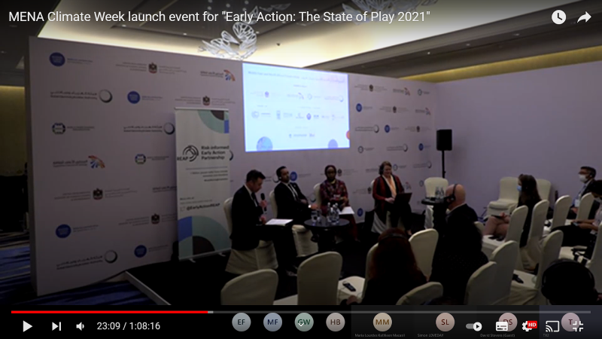
Speakers: Ben Webster, Head of Secretariat, REAP
Ambassador Janet Rogan, UK COP26 Regional Ambassador for the Middle East and North Africa
Dr Nuha Eltinay, Board Advisor and MENA Representative, Resurgence
Dr Animesh Kumar, Head UNDRR Office Bonn
Re-watch: here
Monday 28 March 2022
High-Level Champions Implementation Lab (Water and strengthening resilience)
Host: High-Level Champions for Climate Action
Summary of event: Following the success of the Implementation Labs convened during the 2021 Regional Climate Weeks and the welcoming by Parties of the Improved Marrakech Partnership for Global Climate Action for enhancing ambition, the High-Level Champions will continue to convene the Implementation Labs during the 2022 Regional Climate Weeks as part of their regionalization efforts, starting with the Middle East and North Africa region. The aim of the event is to have an open and solutions-oriented exchange between national government representatives (e.g., from implementation agencies, line ministries, etc.) and non-Party stakeholders (e.g., businesses, cities, subnational regions, investors, and civil society) in the region whose areas of expertise can support countries in implementing their NDCs, NAPs and long-term strategies. By matching the priorities and needs outlined in national plans with the options for policies, technologies and solutions described in the Marrakech Partnership Climate Action Pathways, this will frame the collaboration around shared sectoral goals and a common purpose. It will also provide opportunities on how to adapt and refine the Climate Action Pathways and 2030 Breakthroughs outcomes to bring in the regional context and perspectives.
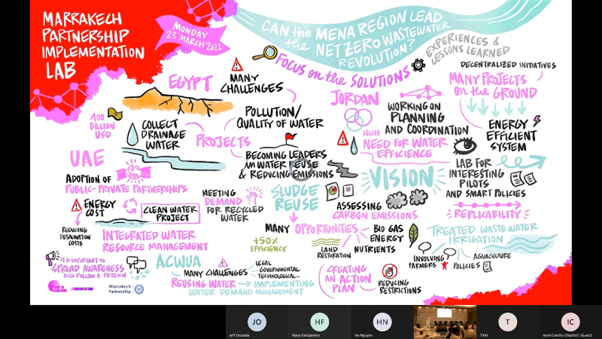
Speakers: Mahmoud Mohieldin, High Level Champion, COP 27 Presidency, Egypt
Nigel Topping, High Level Champion, COP 26 Presidency, United Kingdom
Marie-Hélène Nassif, International Water Management Institute (IWMI)
Mohamed Ghanem, Ministry of Irrigation and Water Resources, Egypt
Shada Al Sharif, Prime Minister Office, Jordan
Khashman Khaldon, Arab Countries Water Utilities Association (ACWUA)
James Grinnell, Dubai Regulatory and Supervisory Bureau, International Center for Biosaline Agriculture (ICBA) representative
Salam Al Momany, Carbon Reduction and Energy Efficiency in Water Utilities, GIZ
Mohamed Zahran, World Youth Forum
Re-watch: here
Tuesday 29 March 2022
Water Resilient Food Systems under Climate Change
Host: International Water Management Institute (IWMI); Alliance for Global Water Adaptation (AGWA); International Union for Conservation of Nature (IUCN); Global Resilience Partnership (GRP) and FAO
Summary of event: The consequences of a more unpredictable and riskier water cycle on the MENA region, detailed in the IPCC AR6 report, demands urgent action if we are to meet future food and water needs of the people there. In this region, the development of resilient food systems and sustainable healthy diets for all, requires much larger water use, but these resources are limited and needed for other vital functions. Water use in food systems needs to be brought within the natural limits of the region and reflect the “new normal” hydrological conditions. If innovations are harnessed and systems carefully managed, transformations in food-water practices and policies can bring climate mitigation and adaptation, and a social and environmental space that considers water and food needs of people alongside that of the ecosystems that provision them. Achieving transformations of water resilient food systems will require a compact between national and local government, communities and the private sector that bring together bundled solutions that integrate technology, data services, enhanced governance and policy.
This session brought together policy and law makers, farmers and water professionals, financiers, insurers and donors, implementers and researchers from across water and food systems who are tackling challenges of the climate and biodiversity crises. The opening framing highlights the challenges faced by ministers and law makers in selected countries. The Wadi-side Chat then explores these issues in more detail drawing on experience of leaders from different settings from across the region and world. In the final part of the session there was a call to action followed by a focus on solutions that can be used to help build resilience in food and water systems, including nature based ideas.
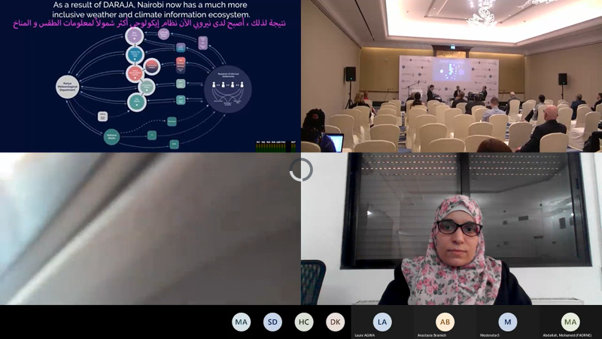
Speakers: Sandra Ruckstuhl, Special Advisor to the Director General and Senior Researcher, Climate Change Adaptation, IWMI
Rachael McDonnell, Deputy Director General, Research for Development, IWMI
Anders Jagerskog, Senior Water Resources Management, Global Water Practice, World Bank
Ali Hayajneh, Water and Climate Change program Manager, IUCN
Re-watch: here
Wednesday 30 March 2022
Tapping the Potential: Actions of Race to Resilience Partners in MENA region
Host: Global Resilience Partnership (GRP-R2R)
Summary of event: Global temperatures are currently at least 1.1 degrees Celsius warmer than pre-industrial levels, and many climate impacts are already locked in. These impacts will disproportionately affect those who are most vulnerable. Some will be able to adapt but many will not. The consequences of extreme heat, drought, floods and rise in sea-levels will impact communities throughout the Middle East and North Africa disproportionately as well.
Building long-term resilience to the increasing risk of drought and flood – and doing so immediately – is crucial for cost-effective climate change adaptations as well as unlocking wider prosperity. Identifying effective climate resilience strategies and opportunities to create funding opportunities for them to be implemented and scaled are critical to maintaining economies and livelihoods in the region; including in urban, rural and coastal communities.
The UN-backed Race to Resilience is helping address this by catalysing actions and investments by non-state actors. This session will focus on what Race to Resilience partners are doing in the MENA region to build the resilience of communities and businesses, and to protect the lives and livelihoods of people most vulnerable to climate change. .
The side-event will focus on two of the themes for the Regional Climate Week: Integrated approaches for climate resilient development and Seizing Transformation Opportunities.
The side-event will be a 90 minute moderated and interactive discussion featuring Race to Resilience Partners who are working in the MENA region The initiatives selected to participate are those focussed on building the adaptive capacity and resilience of vulnerable communities whose livelihoods are under increasing risk due to climate change.
The purpose of the side-event will be to:
- Provide the latest resilience analytics on community vulnerability to extreme heat and other climate stresses and shocks in the MENA region.
- Demonstrate the actions being taken by non-state actors in the MENA region to adapt and build resilience to climate change, specific to water security, extreme heat stress and droughts.
- Identify, through best-practice case studies, the integrated approaches state and non-state actors can adopt which build the resilience of rural, urban and coastal communities.
- Highlight the work of the Race to Resilience to address resilience and adaptation challenges by building collaborative coalitions of non-state actors and sharing knowledge to scale up best-practice.
- This event will highlight the positive social, environmental and economic outcomes that investing in resilience and adaptation will bring.
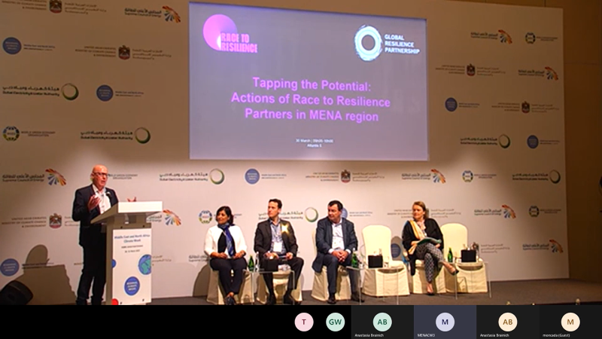
Speakers: Prof. Tasheen Jafry, Director, Center for Climate Justice, Glasgow Caledonian University
Nigel Topping, High Level Champion, COP26, UK
Mahmoud Mohieldin, High Level Champion, COP27, Egypt (tbc)
Noha Shaker, Secretary General of the Egyptian Fintech Association and Vice President of the Africa FinTech Network, Egyptian FinTech Association
Mark Harvey, Founder & CEO, Resurgence
Nathanial Mathews, CEO, Global Resilience Partnership
Re-watch: here
Thursday 31 March 2022
Scaling up climate risk management and innovative financing for locally led adaptation
Host: United Nations Capital Development Fund, UNDP, UfM
Summary of event: Scaling up successful solutions, mechanisms, and actions that enhance the effectiveness of adaptation finance and ultimately empower local governments and local actors to contribute towards the implementation of adaptation measures is critical. These include strengthening transparency and responsiveness of donor funding, increasing ownership and participation of local communities, and building local stakeholders’ capacity on climate risk informed planning and mainstreaming, among others. This session will discuss and share lessons learned on best practices on innovative technical and financial solutions that scale up adaptation finance for locally led adaptation in MENA countries. Moreover, it will showcase how climate risk informed local planning, combined with participatory planning tools, can help bolster evidence-based decision making and improve access to climate funds, at both national and subnational level, by providing sufficient evidence, justification and climate rationale for proposed intervention. It will also shed light on how the private sector can be mobilized in the region to finance small to mid-sized projects at the subnational level drawing on the example of the Global Subnational Climate Fund (“SnCF Global”) who managed to achieve a paradigm shift in the model for demand led climate finance.
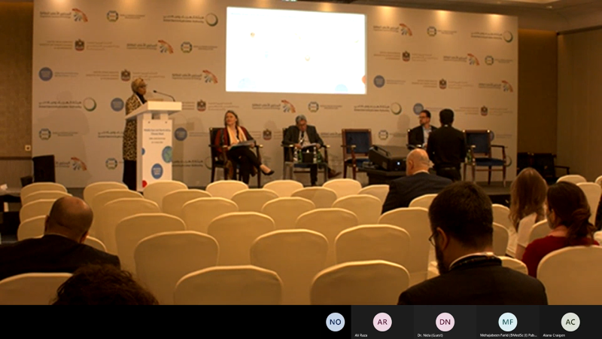
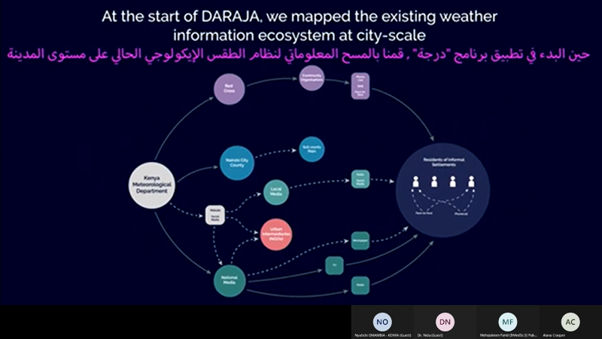
Speakers: Janet Rogan, COP26 Regional Ambassador for Africa and the Middle East
Khalid R Temsamani, Professor, Faculty of Sciences of Tétouan, Université Abdelmalek Essaâdi, Morocco
Dr Nuha Eltinay, Representative MENA Region and Board Advisor, Resurgence
Ronan Pecheur, Senior Programme Specialist, UNCDF/LoCAL
Christophe Nuttall, Founder and Strategic Advisor R20 Regions of Climate Action
Daouda Ben Oumar Ndiaye, Lead Climate Change Specialist, Islamic Development Bank
Amin Naguib, Team Leader, EU Clima-Med
Re-watch: here
For more information, please contact:
Mark Harvey (Founder & CEO) mark@resurgence.io +44 7703180524
Dr. Nuha Eltinay (Representative for MENA Region / Board Advisor) nuha@resurgence.io +966 537575004
